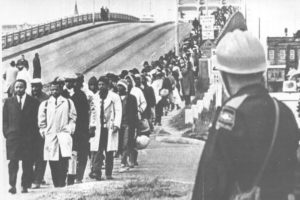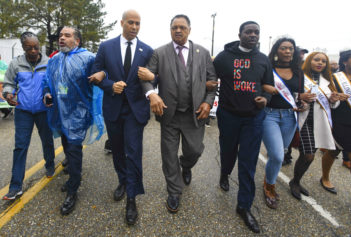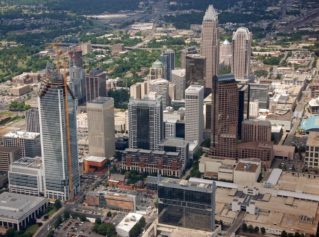
Patrick Sharkey, author of the book, Stuck in Place: Urban Neighborhoods and the End of Progress Toward Racial Equality, made the case that even African-American families who were doing fairly well a generation ago have experienced extremely high rates of downward mobility, with more than half of Black children raised in middle-class families having moved downward in the income distribution when they reached adulthood.
“The vast majority of Black American families currently living in poor neighborhoods have lived in similarly poor neighborhoods for multiple generations,” Sharkey said in a lecture at the University of Southern California, which was covered by the school’s news site. “This is part of their family history to live in a disadvantaged environment. What I argue in the book is that this empirical fact should really change how we think about and study neighborhood equality.”
Sharkey’s findings were revealed as the nation is indulging in a bit of nostalgia to commemorate the 50th anniversary of the bloody protest march across the Edmund Pettus Bridge in Selma on March 7. As part of the look back, PBS ran a story about a nationwide Gallup poll conducted in February 1965. Though the PBS story celebrated the fact that 26 percent of Americans cited civil rights as a problem facing the nation (second only to the Vietnam War at 29 percent), another poll result that jumped out was the concern of white Americans about what they felt was change coming too quickly.
While Americans by a nearly 2-to-1 margin (58 percent to 31 percent) approved of the new Voting Rights Act, a national Opinion Research Corporation poll showed 68 percent of Americans wanted to see moderation in its enforcement, with only 19 percent wanting vigorous enforcement of the new law.
Another Gallup poll also found that 34 percent of Americans in March said the Johnson administration was moving too fast overall on integration, a number that rose to 45 percent by May—with just 14 percent expressing the view that it was not moving fast enough. In addition, a February 1965 Gallup poll found that 42 percent overall believed the federal government was moving too fast in guaranteeing “Negro” voting rights and the right of “Negroes” to be served in public places such as restaurants, hotels and theaters. Just 25 percent thought it was not moving fast enough.
These numbers about white America seeking moderation in the pace of change are especially interesting considering Sharkey’s findings—namely, that the pace of change for many African-Americans turned out to be about as slow as the white community was seeking.
Sharkey found that the persistence of income inequality is largely a function of neighborhoods and environments—more than half (52 percent) of African-American families have lived in high-poverty neighborhoods over consecutive generations, compared to 7 percent of whites. And in a profoundly telling statistic that speaks to the power of redlining and housing discrimination, Black families making $100,000 a year or more live in more disadvantaged neighborhoods than whites making less than $30,000.
“Just this figure alone tells you that something is going on in American neighborhoods that is not driven by income, not driven by wealth, but is unique to this interaction between race and urban inequality,” Sharkey said. “The basic pattern here is very clear. Black and white children continue to live in entirely different social worlds.”


